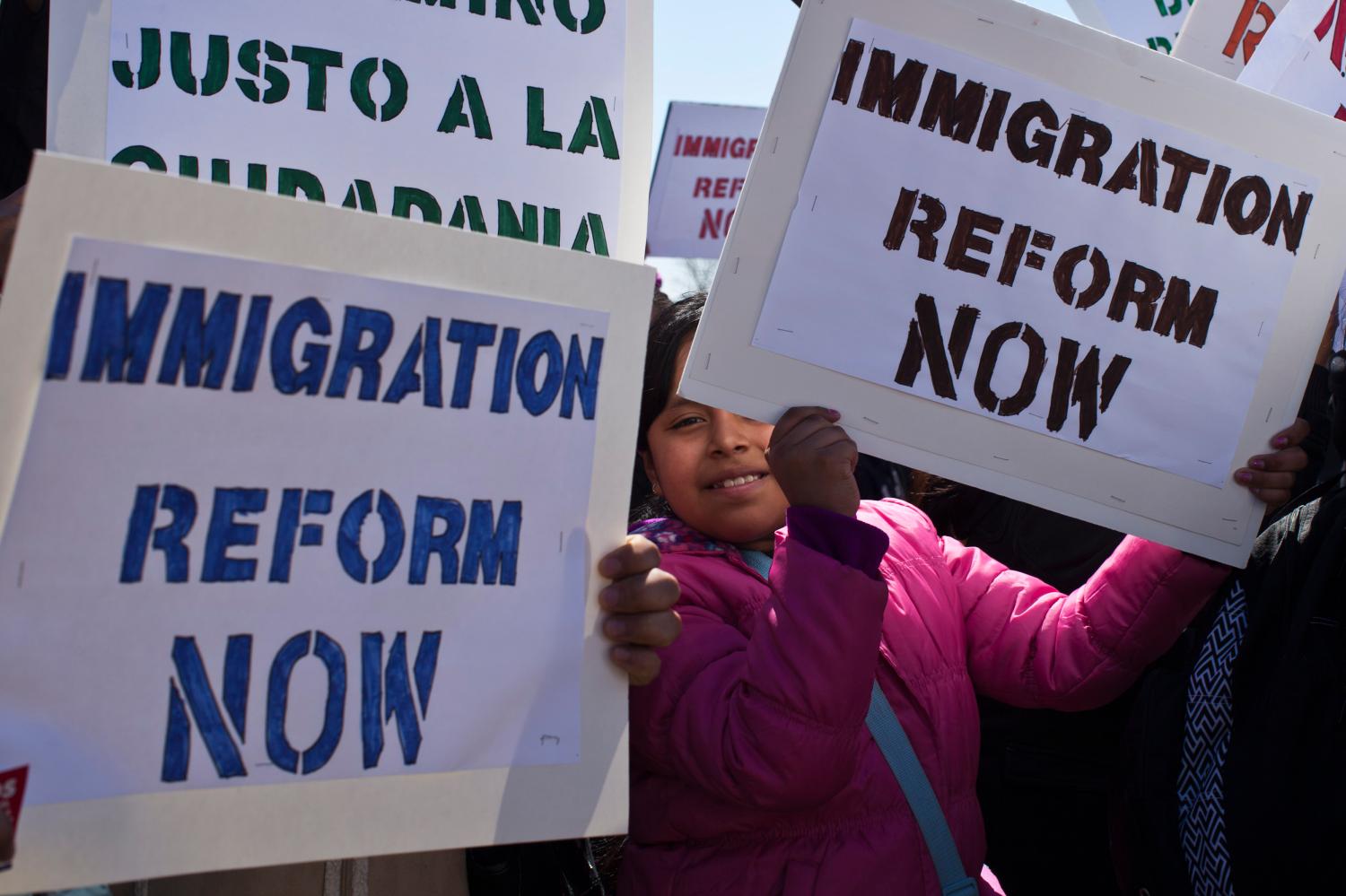Throughout the country, almost two-thirds of Americans support a pathway to citizenship for undocumented immigrants according to a new poll based on national surveys, a state survey of Ohio, and focus groups held in Florida and Arizona. While states remain active in the world of immigration policy, the focus remains on the federal government to address the issue.
Last week, the New Jersey State Senate passed the New Jersey Tuition Equality Act, offering in-state tuition and financial aid to undocumented students in the state. The bill now returns to the state Assembly, where “a similar bill, but one that does not include a provision allowing undocumented students to receive financial aid,” already passed.
The bill is expected to be approved by the Assembly, and the question remains whether Governor Chris Christie will sign or veto the bill.
In related news, a recent analysis of Oregon’s public university system, which recently adopted in-state tuition for undocumented students, found only 25 students enrolled this year in the tuition equity program. In Arizona, two community college students in Maricopa County signed on as defendants against Attorney General Tom Horne’s attempt to block in-state tuition for DACA recipients.
Maryland state legislators working with the American Civil Liberties Union are planning to introduce a California-style Trust Act that would “limit local police involvement in immigration enforcement.” Not everyone is happy about this possibility, especially Frederick County’s sheriff, who has participated in local immigration enforcement programs.
While we often focus on policies to integrate immigrants into the community locally, we can sometimes overlook the role of refugees in metro areas. Last week, central and upstate New York NPR affiliates detailed the contributions of refugees to metropolitan economies from Buffalo to Utica.
A good deal of state legal policy emerged last week. The New York Times reports the New York Court of Appeals ruled “judges must warn immigrant defendants that they face deportation if they plead guilty to a felony,” reversing a 1995 ruling. In Pennsylvania, the state prison system is beginning to return undocumented immigrants convicted of non-violent offenses to their country of origin before completing their sentence as a cost saving measure. In Iowa, the state Supreme Court ruled undocumented workers are eligible for workers’ compensation. On the other hand, Al Jazeera America reports on policy violations in Alabama, where “certain counties… have been refusing to provide undocumented immigrants with marriage licenses,” violating federal law.
The Brookings Institution is committed to quality, independence, and impact.
We are supported by a diverse array of funders. In line with our values and policies, each Brookings publication represents the sole views of its author(s).




Commentary
This Week in Immigration Reform: In-State Tuition at Issue
November 26, 2013